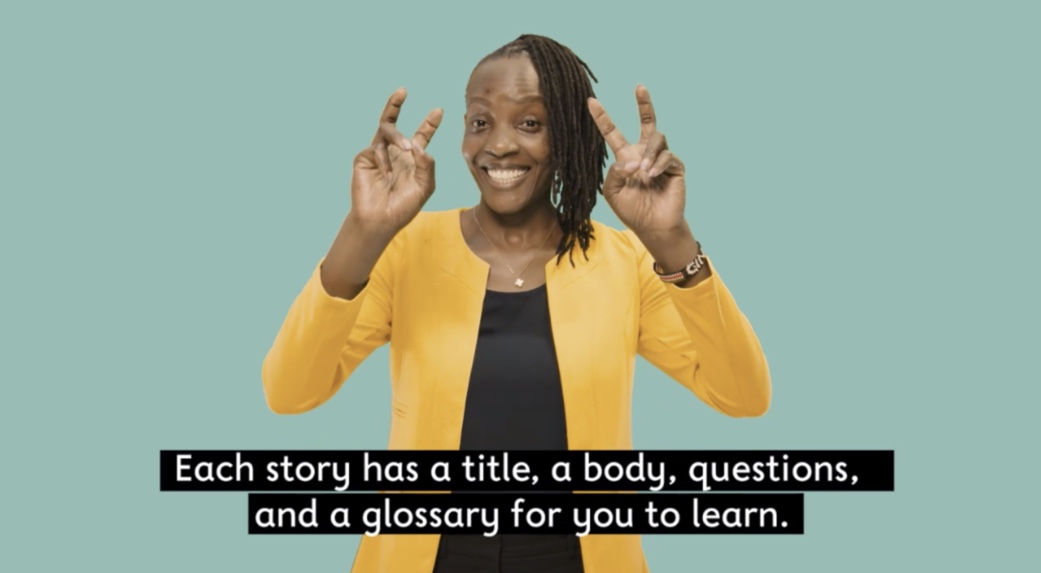eKitabu: Digital story time

eKitabu Studio KSL Director Georgine Auma signing in Kenyan Sign Language on a Digital Story Time video (ekitabu, Kenya, 2020)
About:
Digital Story Time (DST) is an accessible digital content initiative launched by KICD (Kenyan Institute for Curriculum Development) and eKitabu in Kenya and which helped to respond to the remote learning needs of students with disabilities during COVID-19. Specifically, sign language video storybooks with closed captions were broadcast over a government digital TV channel in Kenya.
Although digital story time was targeted at users who are deaf or hard of hearing, the books also included human narration and closed captions to benefit all learners. The used sign language is Kenyan Sign Language (KSL) to ensure it is context appropriate and signed slowly to facilitate language acquisition. Even without knowledge of sign language, all children can benefit from the colorful imagery and sound, and learners who have difficulty seeing the screen will be able to listen to the human narrated audio. Each episode is followed by comprehension questions and vocabulary lessons and it includes a tie-in to interactive online learning resources.
Enablers / Barriers:
DST was included in Kenya Ministry of Education’s distance learning program during the COVID-19 pandemic, as the government agency required remote learning solutions within reach. In fact, it was estimated that only 10% of children were able to access the government learning cloud through the internet due to device access or cost of data, whereas some 60-70% of children were able to access government educational programming on the TV, including DST, while some 80-90% had access to the radio in some form. Broadcasting DST on public TV allowed all children, including children with hearing impairments, to access remote education programming during the pandemic.
On the other hand, although a TV channel can be a positive medium for reach due to proliferation of television sets, as far as learning materials go, it is a linear passive experience and does not allow the user to control the pace or express what they know through input, and can also go so far to facilitating learning and language acquisition.
Details:
Implementing organizations:
eKitabu, KICD (Kenyan Institute for Curriculum Development), Kenyan Ministry of Education (MoE)
Country:
Kenya
Year:
2020
Languages:
KSL (Kenyan Sign Language), English, Kiswahili
Formats:
Video (mp4), TV Broadcast
Keywords:
Sign Language, Deaf and Hard of Hearing, Video, TV, KSL (Kenyan Sign Language), Storybooks, KICD (Kenya Institute of Curriculum Development), COVID-19, Remote Learning
Source:
https://www.ekitabu.com/2020/06/23/ekitabus-signed-digital-story-time-included-in-kenya-ministry-of-educations-distance-learning-program/
https://www.ekitabu.com/digitalstorytime/